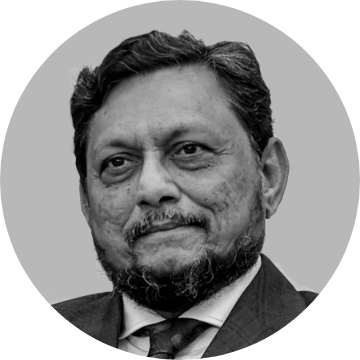S.A. Bobde

S.A. Bobde
Former Chief Justice of the Supreme Court of India
Assumed Office18th Nov, 2019
Retired On23rd Apr, 2021
Previously
Judge of the Supreme Court of India12th April 2013 - 17th November 2019
Chief Justice of Madhya Pradesh High Court16th October 2012 - 11th April 2013
Judge of Bombay High Court29th March 2000 - 15th October 2013
Profile
Early life and graduation
Justice Sharad Arvind Bobde was born on 24 April 1956 in Nagpur, Maharashtra. He was a fourth generation lawyer in a family of lawyers practising since before independence. His great grandfather, Ramchandra Pant Bobde, and grandfather, Srinivas Ramchandra Bobde were advocates. Justice Bobde’s father Arvind Shrinivas Bobde was the Advocate-General of Maharashtra between 1980 to 1985.
In 1972, Justice Bobde completed his high school education from St. Francis De’Sales High School, Nagpur. He attended college at St. Francis De’Sales College, Nagpur. In 1975, he graduated from the Nagpur University with a Bachelor of Arts degree. In 1978 he graduated with a degree in law from Dr. Ambedkar Law College, Nagpur University.
During his college years, Justice Bobde participated in sports, elocution, and dramatics. He was on the Nagpur University College of Law team which won an inter-collegiate championship in lawn tennis. He also played tennis in the All India Inter-Universities Tournament.
Career as Advocate
Justice Bobde enrolled as an advocate with the Bar Council of Maharashtra on 13 September 1978. He practised before the Nagpur Bench of Bombay High Court. In 1998, he was designated as a Senior Advocate of the Bombay High Court.
Justice Bobde practised in civil, labour, company, and taxation law. He specialised in constitutional, administrative, environmental and election related matters.
Career as a Judge
After practising law for 22 years, on 29 March 2000, Justice Bobde was appointed as an Additional Judge to the Bombay High Court. Two years later, on 28 March 2002, he became a Permanent Judge of the Bombay High Court.
On 16 October 2012, Justice Bobde became the Chief Justice of the Madhya Pradesh High Court. His stint as a Chief Justice of a High Court was short lived. Six months later, on 12 April 2013, he was elevated to the Supreme Court.
On 18 November 2019, Justice Bobde became the 47th Chief Justice of India. He retired on 21 April 2021 after a tenure of eight years at the Supreme Court. Out of this, he was the CJI for 1.4 years.
Figure 1 indicates that CJI Bobde authored 68 judgements and was a part of 560 benches.
CJI Bobde authored majority of his judgements in Criminal matters (35%). He also authored judgements in Arbitration (8%), Constitution (7%), Civil (6%), and Service (6%) matters.
Notable judgements
Justice Bobde was on the five-judge bench in the Ayodhya Title Dispute, which unanimously awarded a disputed plot of land to the deity, Shri Ram Virajman. It overturned a judgement of the Allahabad High Court which divided the title of the Babri Masjid and the Ram Janmabhoomi site stating that the Hindu and Muslim parties were joint holders of the disputed premises. The Bench directed the Union to grant the Sunni Waqf Board five acres of land at a “prominent” location in Ayodhya.
Justice Bobde authored a concurring opinion in Justice K. S. Puttaswamy v Union of India (2017) which recognised the right to privacy as a fundamental right. Justice Bobde wrote that privacy is “inextricably bound up with all exercises of human liberty.”
In March 2021, in Association for Democratic Reforms v Union of India, a bench led by CJI Bobde refused to stay the Electoral Bonds scheme. They held that the “apprehension that foreign corporate houses may buy the bonds and attempt to influence the electoral process in the country, is…misconceived.” On 15 February 2024, the bench struck down the Scheme stating that it violates voters’ right to information. It observed that the Scheme unlawfully allows corporate houses to influence policies through quid pro quo arrangements between the donor and the political party.
In Mohammad Salimullah v Union of India (2021), a Bench led by CJI Bobde held that Rohingya Refugees cannot claim the right against deportation under Article 19(1)(e) i.e. freedom of movement. The Bench held that the fundamental right under Article 19 is only available to “citizens” under the Constitution.
In Abhiram Singh v C.D. Commachen (2017), a seven-judge bench held that “any appeal” based on religion, race, caste, community or language of a voter or candidate is a “corrupt practice” and illegal under Section 123 of the Representation of Peoples Act, 1951. Justice Bobde authored the concurring opinion stating that such appeals should not be made to “avoid the vitiating of the secular atmosphere of democratic life.”
In Krishna Kumar Singh v State of Bihar (2017), Justice Bobde was part of a seven-judge Constitution Bench which held that re-promulgation of ordinances is a fraud on the Constitution and a subversion of democratic legislative processes.
CJI Bobde led the Division bench in Poojaya Sri Jagadguru Maate Mahadevi v Government of Karnataka, which upheld the Karnataka government's ban on a book by Mate Mahadevi, which resulted in a religious outrage among Lord Basavanna’s followers.
